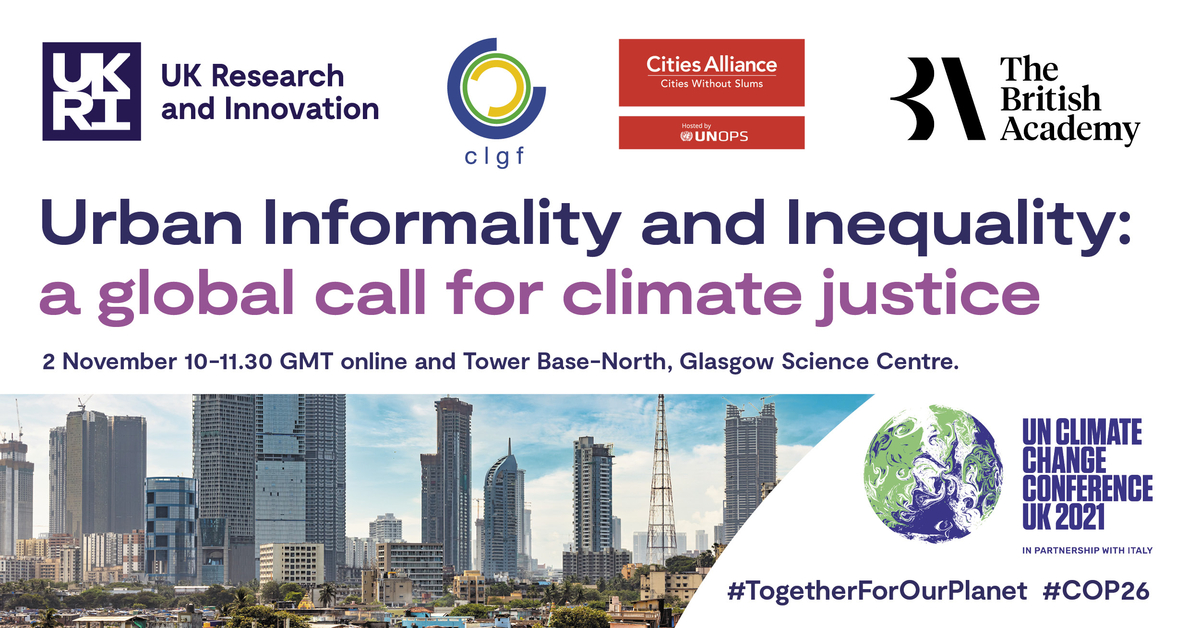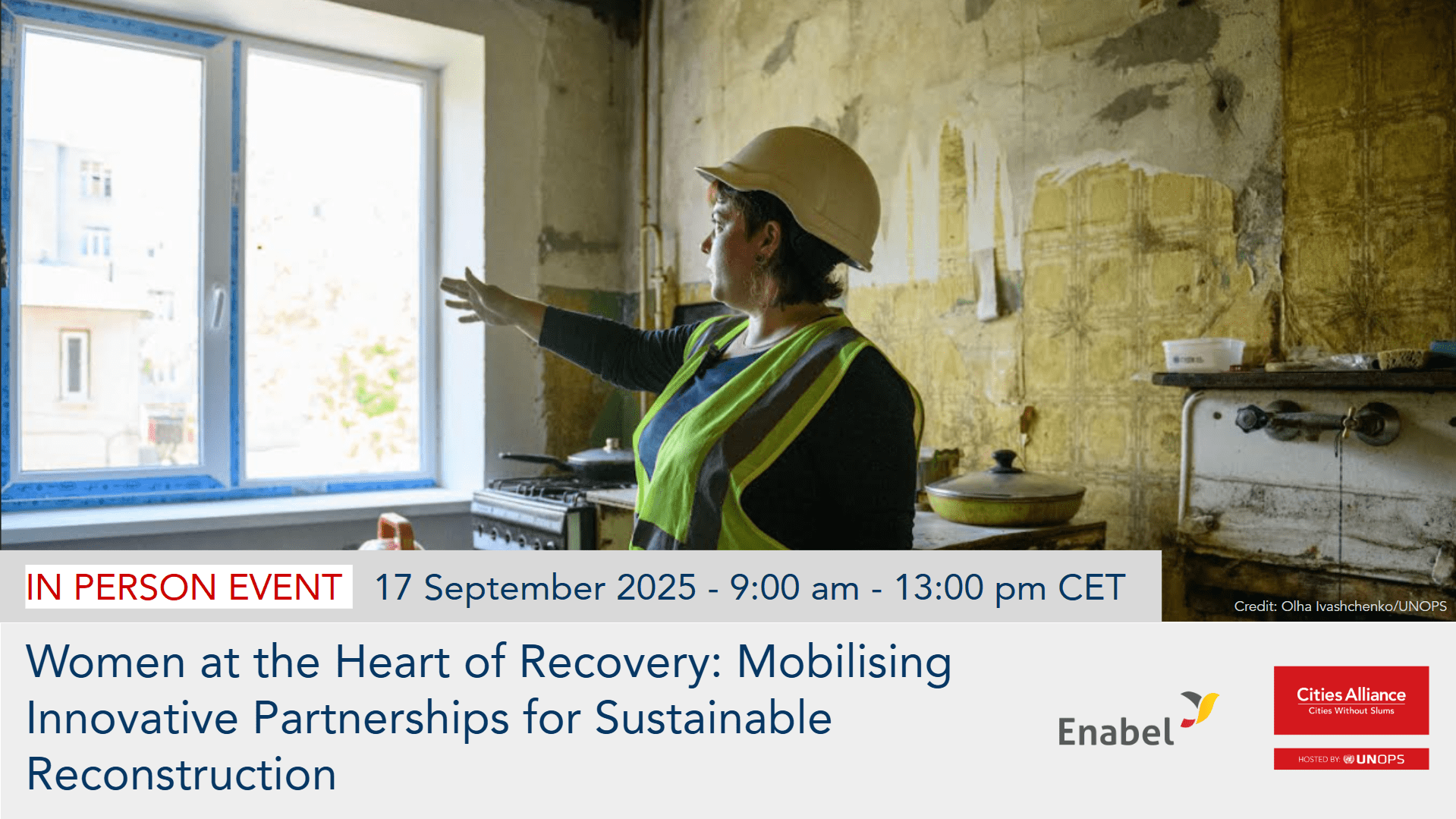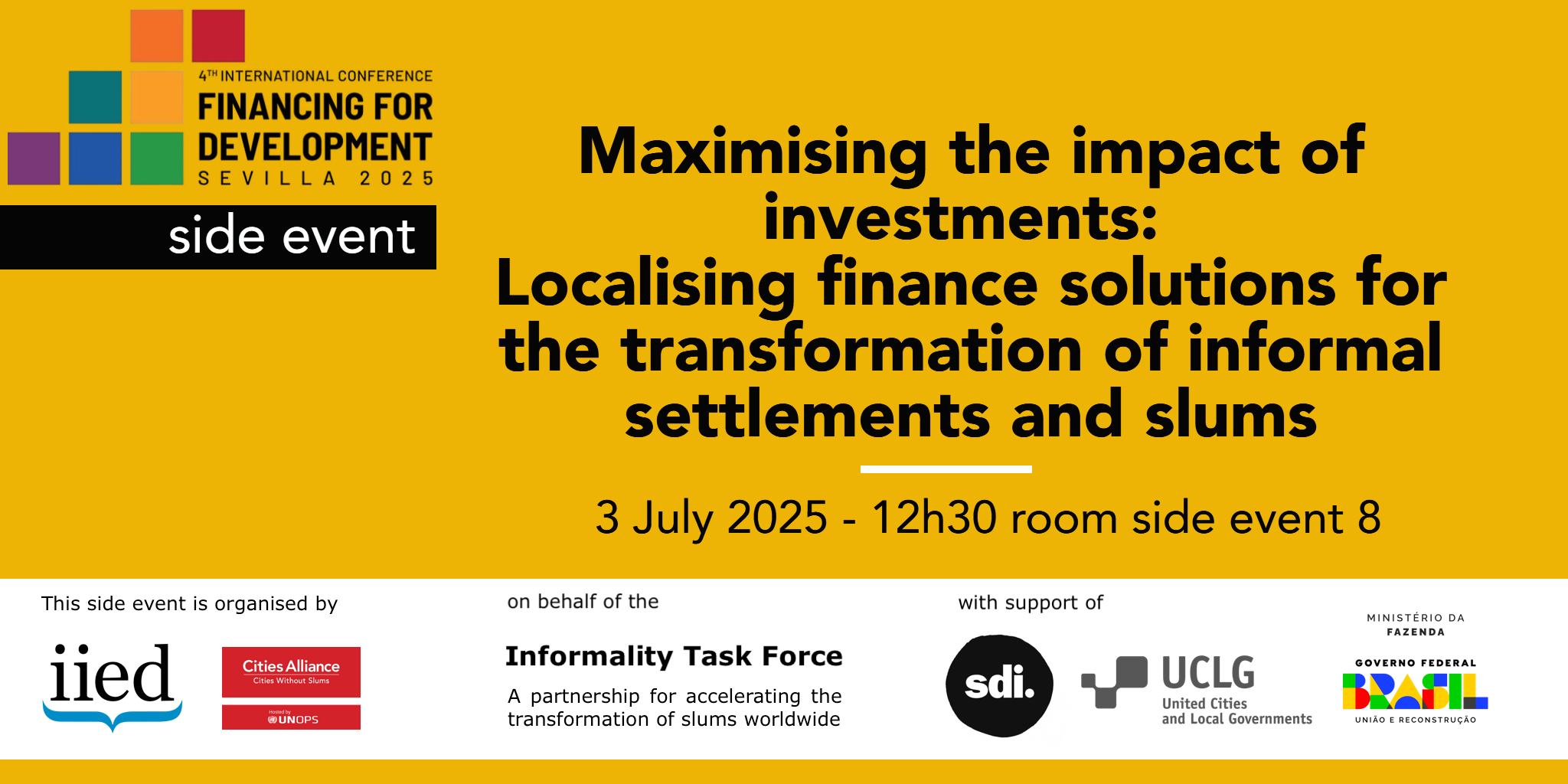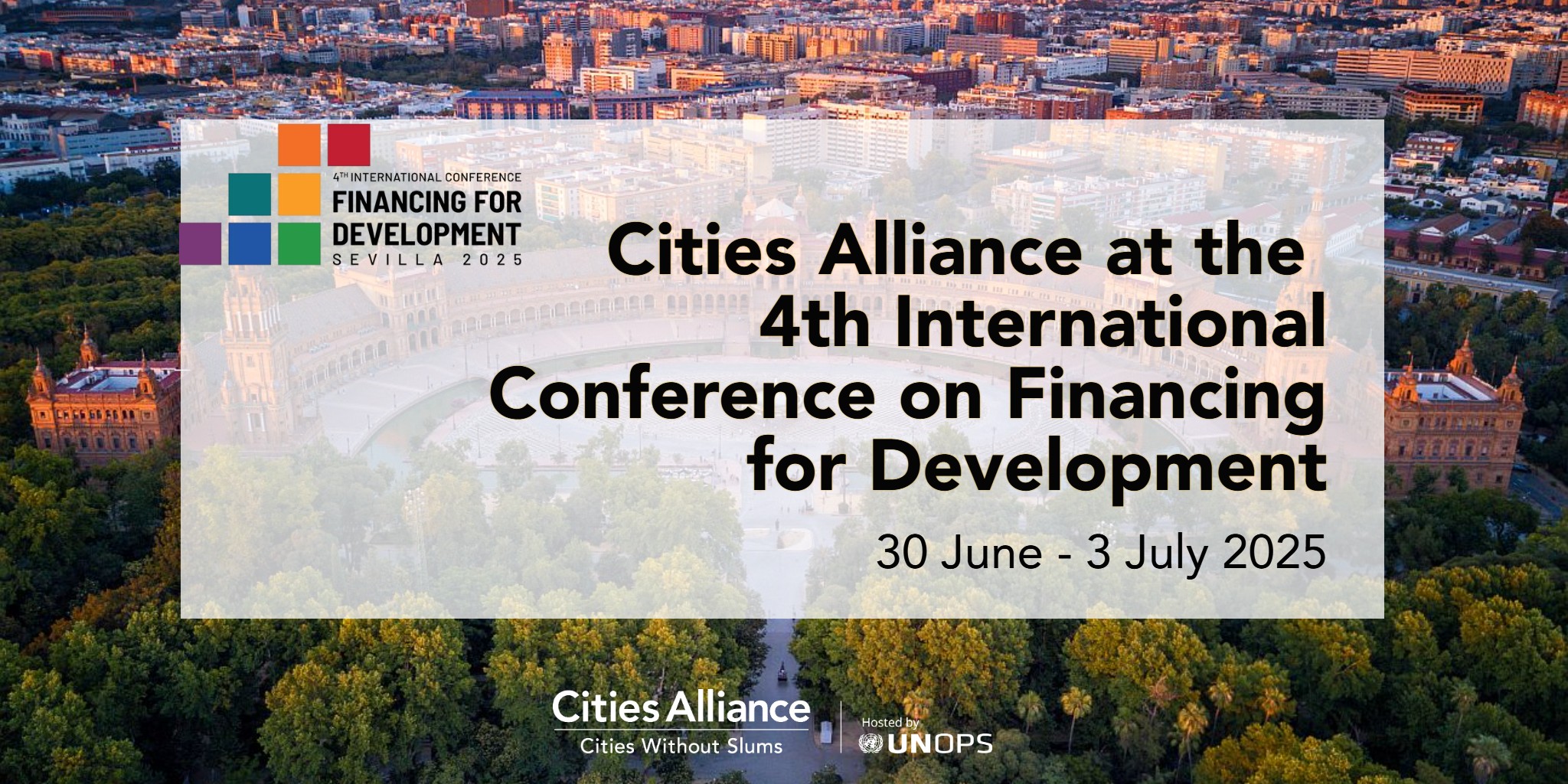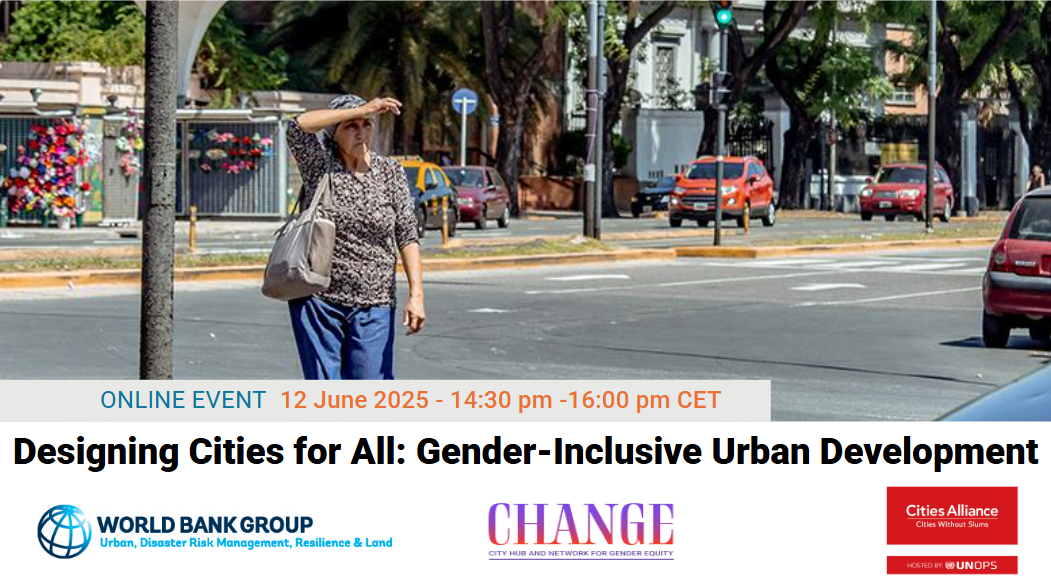- Who We Are
- How We Work
- Regional / Country Initiatives
- Legacy
- Core Themes
- Working Groups
- Portfolio & Results
- Newsroom
- Resources
COP26 - A Global Call for Climate Justice

During the COP26, Cities Alliance, the Commonwealth Local Government Forum (CLGF) and UK Research and Innovation (UKRI) will be hosting a session on the nexus between climate resilience and urban poverty and informality. The event will take place on Tuesday 2 November at 10:00 AM (Glasgow time) in the public-facing Green Zone - Tower Base North. It will also be available to join online for those not attending in person.
The recent COVID-19 crisis made clear how interconnected global health, social, economic and environmental challenges are and the way that structural inequalities can exacerbate their impact. It forced many to acknowledge the immediate need for a locally-led response and to better prepare people – especially the most vulnerable – and the planet for future pandemics and climate impacts.
The bulk of the demographic growth is predicted to happen in secondary cities of the global south, in informal, poorly planned, neighbourhoods. By 2050, this will lead to a doubling of the total population living in informal settlements.
Cities are central to the delivery of the climate commitments of the Paris Agreement and Sustainable Development Goals. Ensuring climate justice for the urban poor, who are at the front line, will be critical to their well being and livelihoods.
However, examples of integrated policies of urban planning and management, centred around local climate risks and the lives of the urban poor are in place, they still require significant leverage.
This session on Urban informality & inequality: a global call for climate justice will allow to share cross-sector perspectives on the challenges of addressing climate change equitably in cities. The main purpose of the event is to help shape critical policy and research priorities towards climate justice and raise awareness about the cumulative risks created by conditions of urban informality, inequality and climate vulnerability in developing effective responses to climate change.
The panel discussion will revolve around three core questions:
- How should we strengthen climate change action to achieve climate justice by taking account of urban informality and inequality, alongside climate change vulnerability?
- What are the priorities for action at the local level?
- How can we strengthen equitable engagement between policy makers, researchers and marginalised communities to achieve climate justice?
Keynote speech:
- Yvonne Aki-Sawyerr, Mayor of Freetown, Sierra Leone.
Contributors:
- Joanes Atela, Convener Africa Research and Impact Network, Director Partnerships African Centre for Technology Studies, Kenya
- Harriet Bulkeley, Professor of Geography, Durham University, UK.
- Vanesa Castan Broto, Professor of Climate Urbanism, University of Sheffield, UK
- Sonia Dias, Waste Specialist, WIEGO, Brazil
- David Dodman, Director, Human Settlements, International Institute for Environment and Development, UK
- Aníbal Gaviria, Governor of Antioquia, Colombia and President of Cities Alliance
- Martin Kipping, Head of Division, Climate Policy, Federal Ministry for Economic Cooperation and Development, Germany
- Rubbina Karruna, Regional Cities & Infrastructure Adviser, Foreign, Commonwealth and Development Office, UK
- Rose Molokoane, National Coordinator of the Federation of the Rural and Urban Poor, Affiliate of Slum Dweller International (SDI) and one of the SDI’s Founding Leaders, South Africa
- Greg Munro, Director, Cities Alliance (Chair)
- Aromar Revi, Director, Indian Institute for Human Settlements, India
- Emilia Saiz, Secretary General, UCLG on behalf of the Global Taskforce of Local and Regional Governments.
This discussion will build on the considerations pinpointed during the Innovation for Inclusive, Resilient and Climate-Neutral Cities session at the I4C conference.
